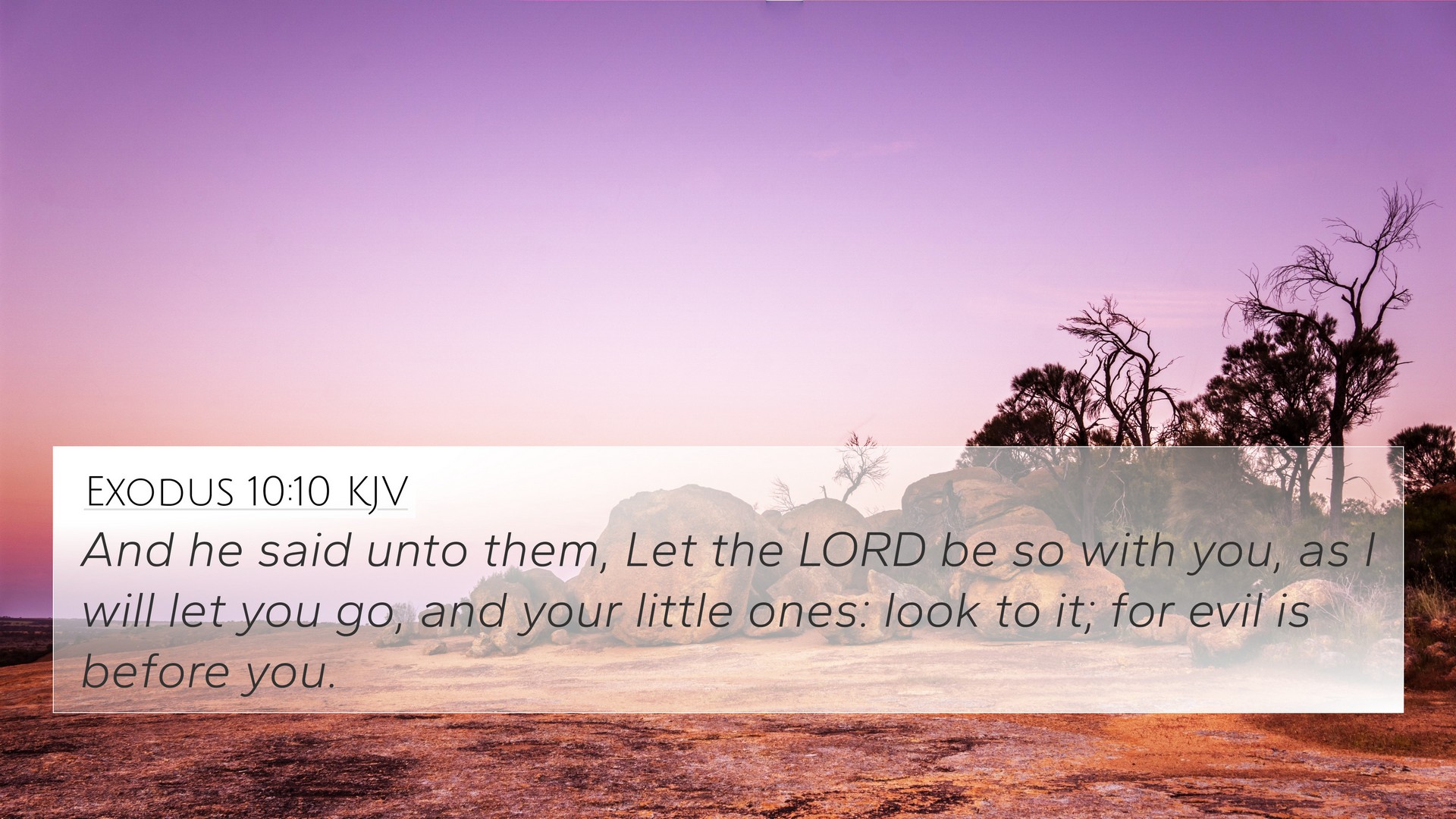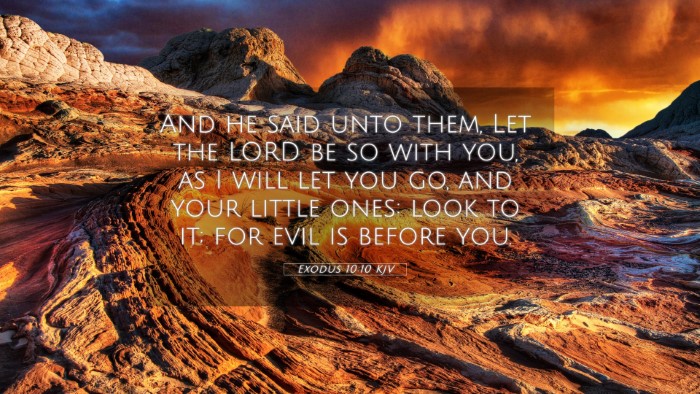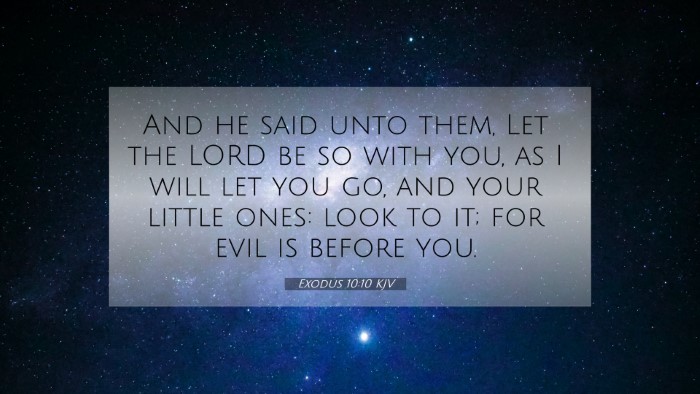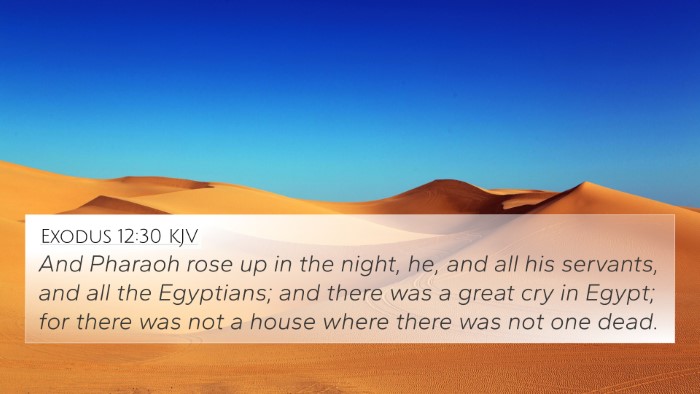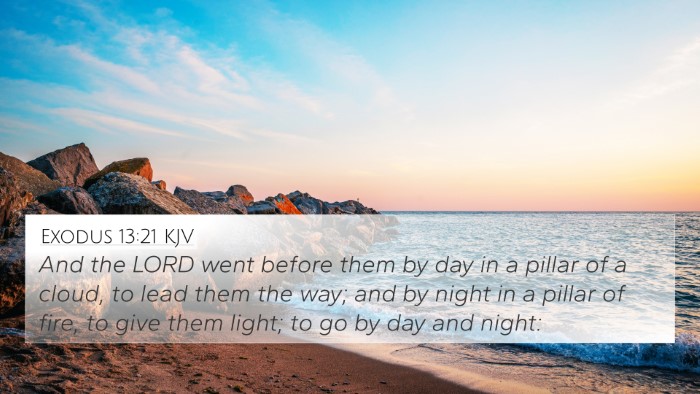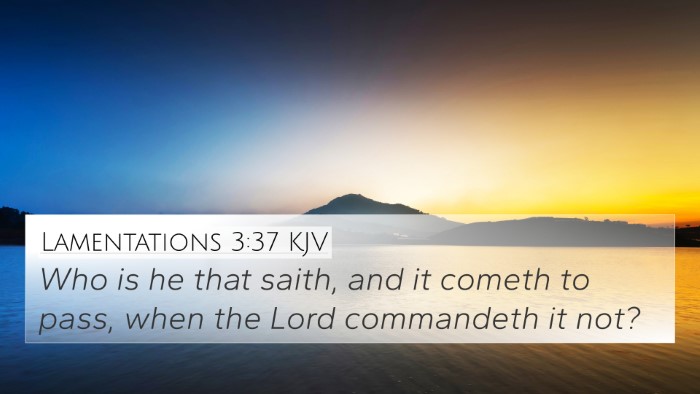Understanding Exodus 10:10
Exodus 10:10: "And he said unto them, 'Let the LORD be so with you, as I will let you go, and your little ones: look to it; for evil is before you.'" This verse is a part of the dialogue between Pharaoh and Moses during the plagues in Egypt, specifically focusing on Pharaoh’s reluctance to let the Israelites leave.
Summary of Insights from Public Domain Commentaries
This verse highlights the tension between Pharaoh's hardened heart and the desperate plea of Moses, who represents God's command. It is critical to understand this in the context of God's desire to free the Israelites and the obstinacy of Pharaoh.
Pharaoh's Response
Matthew Henry's Commentary: Matthew Henry explains that Pharaoh's response is dismissive, yet it reveals the struggle between divine command and human resistance. Pharaoh seems to relent partially, suggesting he is open to negotiations but still holds onto his power, indicating a lack of true repentance.
God’s Sovereignty
Albert Barnes' Commentary: Barnes emphasizes how the verse signifies God’s sovereignty. Pharaoh's statements represent a facade of yielding, but his heart remains unyielded. God uses these moments to showcase His immense power and forewarn of the consequences of disobedience.
The Nature of Evil
Adam Clarke's Commentary: Clarke elaborates on the mention of "evil" in this verse. It can refer to calamity or disaster, indicating that Pharaoh is aware of the dire situation yet still refuses to comply. This highlights a critical theme of the evil that comes from resisting God's will.
Cross-Referenced Verses
To better understand Exodus 10:10, here are some verses that connect thematically or contextually:
- Exodus 5:2: Pharaoh’s initial refusal to recognize God.
- Exodus 7:14-16: God’s instructions to Moses regarding Pharaoh.
- Romans 9:17-18: The hardening of hearts in relation to God’s mercy.
- Psalms 105:25: God’s influence on Pharaoh's heart to fulfill His purpose.
- Isaiah 63:17: A plea questioning the hardening of hearts against God.
- 2 Peter 3:9: Highlighting God's patience and desire for repentance.
- Revelation 16:9: The unrepentant hearts in the face of divine judgment.
Thematic Connections in Scripture
The narrative in Exodus not only reveals God’s intentions to liberate His people but also serves as a parallel to the New Testament, where themes of oppression, redemption, and the struggle against evil are further developed. The act of Pharaoh symbolically reflects humanity’s overall resistance to divine will, an overarching theme in scripture.
How This Verse Connects to Broader Biblical Themes
Exodus 10:10 serves as a reminder of the continuous need for humility and submission to God's will in both the Old and New Testament. The implications of Pharaoh’s heart can be linked to various teachings of Jesus concerning the dangers of pride and the necessity for repentance. Understanding these connections aids in drawing richer meanings from scripture through thematic Bible verse connections.
Tools for Deeper Study
For those seeking to analyze the connections and themes within the Bible, numerous tools for Bible cross-referencing exist:
- Bible concordances that provide keyword references.
- Online cross-reference guides.
- Printed cross-reference Bible study guides.
- Bible reference resources available in books and software.
- Bible chain references that connect passages through themes.
How to Use Bible Cross-References
Using a bible cross-reference system can enlighten the reader on how various scriptures relate. Start with the verse in question, identify keywords, and utilize a concordance to find related passages. Observing the narrative flow across different books of the Bible enriches one’s understanding of how biblical texts converse among themselves.
Conclusion
Exodus 10:10 illustrates the ongoing battle between divine authority and human pride. Understanding this verse and its connections can illuminate the heart of biblical theology, emphasizing God's ultimate authority over humanity and the imperative of surrender to His will. By exploring the Bible’s inter-Biblical dialogue, one can appreciate the rich thematic connections that the scriptures present, leading to a deeper faith and understanding.
